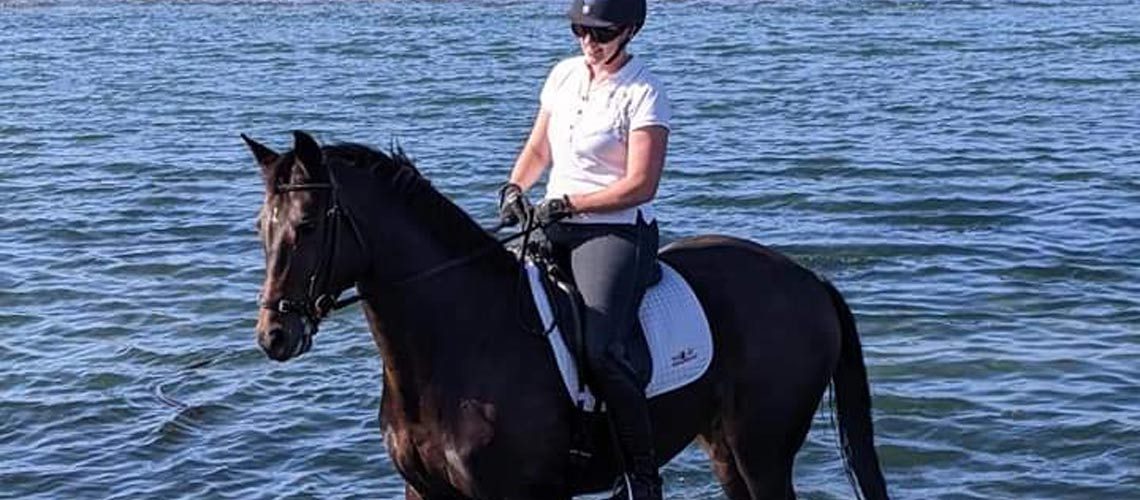I often run across horses that I describe as having a strong sense of “fairness”. They are the horses that keep score. If you don’t acknowledge their honest efforts, they will eventually quit trying for you. If you correct them when they don’t deserve it, they will let you know that you were out of line. I really like these horses, even though it requires me to really be at the top of my game, because when they are convinced you deal fairly with them they will try almost anything simply because you ask them to. They form the deepest partnerships with their humans. And they will tolerate a lot, so long as they deem it “fair”.
These horses do present a challenge though, especially for novice riders who may not realize they are doing something the horse considers “punishment”, and wonder why their horse gets tense and shuts down, or bucks out of frustration. The horses try to communicate their sense of unfairness, but if they aren’t heard, they can get really frustrated and act out. How do you know if you have a “fair minded” horse, and what do you do if you have one?
This overly developed sense of fairness can come out in a number of ways. I most often see it in horses that will actually get more upset if you correct them for doing something you interpreted as naughty, but they were doing for what they deemed a valid reason. For example, I was riding a horse that was nervous in the indoor arena. The way he showed that was by trying to keep his cool and being a good boy until he couldn’t simply contain all his nervous energy and would make a little leap/buck. But, if I got after him for the initial leap/buck, thinking he was just being “fresh and fruity”, he would absolutely panic and lose his marbles. I learned really quickly to re-interpret his seemingly naughty leap/buck as actually a signal that he was feeling anxious, and as soon as I did, and started to soothe him before he felt the need to act out, he stopped acting out altogether and turned into a super-chill dude.
Horses that escalate arguments instead of backing down are often “fairness sensitive” horses. Or, horses that spook worse if you correct them for spooking. I have one horse that will just stop and give me the most disbelieving looks if I correct him unfairly. It sounds odd to characterize a look from a horse, but I could swear he’s holding me in judgement and I’m coming up lacking in his eyes when he gives me one of those looks.
Schoolmasters are the kind of horses that tolerate all kinds of unfairness without taking offense, but the fairness minded horses are often sensitive and demand the best from their riders in order to perform at their best. They hold us to a higher standard of empathy and compassion, and from my perspective that is a good thing. It’s a good thing if we recognize to not simply dismiss these horses as “naughty” or “jerks”, but really learn to be fair in our expectations, judicious in our correction, and free with our praise and acknowledgement of our horses as sentient creatures with feelings, good days and bad, and a completely different awareness of the world.
I’ve always said I would make a really bad horse. We remove their autonomy, make them live in unnatural dwellings, give them no choice for how to live, and force them to rely on us for their very existence. Then, we apply our logic to their behaviors and attach our egos to their actions.
So what can we do if we have a horse like this?
First and foremost, make developing your skills a priority. You won’t be able to interpret the input your horse is giving you if you don’t even notice it, or if you’re so busy thinking about whether you are posting on the right diagonal or not that you can’t be present with your horse. So, unless you want to get another horse, go hardcore on yourself.
Second, start to really observe your horse’s behavior. Watch is facial expressions. Watch his body language. Get to know exactly what set of stimuli trigger his “fairness” alarm. Set aside any judgement about your horse’s behavior, and just observe. Do you notice a pattern to his behavior? Do you find that she objects to the same thing each time? That pinned ear or swishing tail may be your only warning that you are treading into perilous waters! Pay attention!
Third, try to put yourself in your horse’s position. He doesn’t understand *why* you want him to do anything. What reason does he have to work for you? If your roles were reversed, how would you feel about that correction you just gave him, or the unclear request, or the inconsistent expectations. Inconsistency is a huge trigger for fairness minded horses. Really give your own actions and expectations a thorough and honest assessment in terms of how you might feel if someone made you run around a barrel as fast as you can, or make yet another 20 meter circle between E and B. Become truly thoughtful about why you are asking what you are, and aware enough to be consistent in how you ask, what you ask, and when you ask.
Finally, lose your ego. The longer we are around horses, the more we realize that ego and horses is a bad combination. They will either destroy our ego, or fight us over it. So, figure out how to let go of your ego, your need to be the “boss”, and perhaps think of your relationship with your horse more as a partnership than a parent/child relationship. You may have the ideas of the things to do, but your horse actually has to do the things. His full participation is required. Otherwise, you don’t get to pursue your passion, or reach your goals. Notice, *your* passion, and *your* goals. Your horse has to be present and willing to help YOU reach YOUR goals. Don’t downplay his role in seeking your joy. He will literally give his life to the pursuit of *your* joy. The best way you can express your appreciation for his generosity is by being the most fair partner you are capable of becoming, and making his participation as pleasant an experience as possible. It’s only fair.

